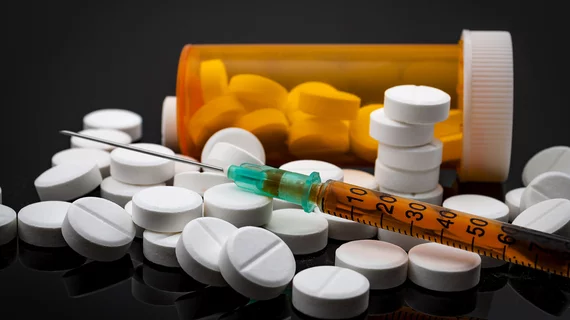Johnson & Johnson settles opioid case with New York for $230M
Johnson & Johnson will pay New York State $230 million in a settlement over a lawsuit against the drug manufacturer for its role in the opioid epidemic.
The amount is the largest ever secured by New York State Attorney General Letitia James. The payment will be made over nine years, with much of the sum paid upfront.
The settlement is the latest in a number of high-figure sums negotiated in lawsuit cases alleging drug manufacturers played a major role in the deaths of thousands of Americans due to opioids. Purdue Pharmaceuticals, which manufactured and sold the popular opioid OxyContin, filed for bankruptcy in 2019 after reaching a $10 billion settlement.
“The opioid epidemic has wreaked havoc on countless communities across New York state and the rest of the nation, leaving millions still addicted to dangerous and deadly opioids,” said Attorney General James. “Johnson & Johnson helped fuel this fire, but today they’re committing to leaving the opioid business—not only in New York, but across the entire country. Opioids will no longer be manufactured or sold in the United States by J&J.”
New York State launched its litigation against Johnson & Johnson in 2019, also naming Purdue Pharma and its affiliates, as well as members of the Sackler Family (owners of Purdue) and trusts they control; Mallinckrodt LLC and its affiliates; Endo Health Solutions and its affiliates; Teva Pharmaceuticals USA, Inc. and its affiliates; and Allergan Finance, LLC and its affiliates. The suit also named distributors McKesson Corporation, Cardinal Health Inc., Amerisource Bergen Drug Corporation and Rochester Drug Cooperative Inc.
“The cases against Purdue Pharma (and subsequently the Sackler family), Mallinckrodt, and Rochester Drug Cooperative are all now moving separately through U.S. Bankruptcy Court,” James’ office announced.
As part of the settlement, J&J will pay New York $229,862,769.25 over nine years, with the schedule of payments determined by how many of the state’s political subdivisions accept and choose to participate in today’s agreement, as well as whether the state approves a bill to create an opioid settlement fund. Additionally, J&J agreed to no longer manufacture and sell opioids in the state of New York as well as no longer shipping opioids within the U.S.
“Additionally, J&J will be prohibited from promoting opioids or opioid products through sales representatives, sponsorships, financial support or any other means; will not be allowed to provide financial incentives to its sales and marketing employees for the sale of these products; and will not, directly or indirectly, provide financial support or in-kind support to any third party that primarily engages in conduct that promotes opioids, opioid products or products for the treatment of opioid-induced side effects,” James’ office said.
The settlement also included other terms J&J agreed to, such as prohibiting discipline against employees for not hitting sales quotas for opioid drugs.

